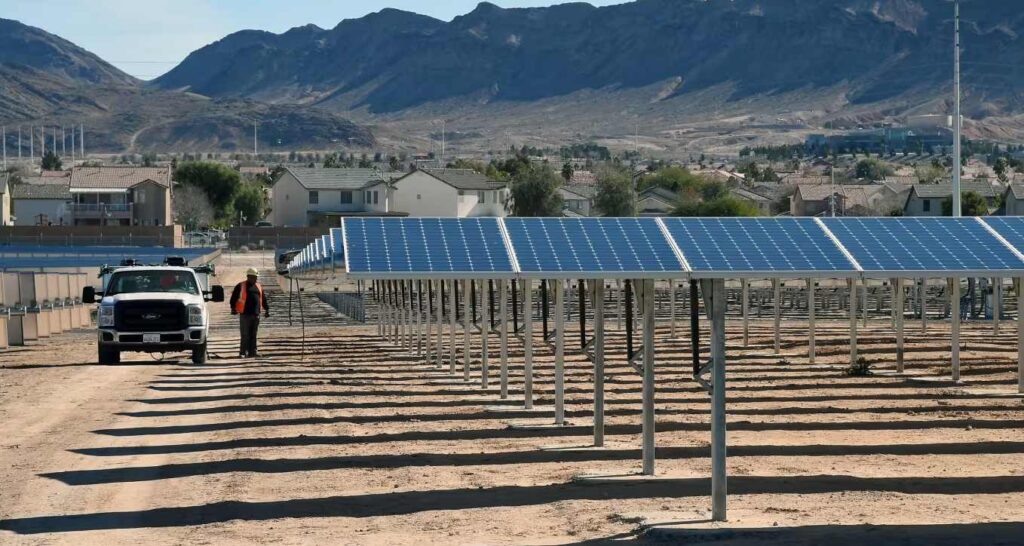The United States has officially moved to cancel what would have been North America’s largest solar energy development, signaling another major blow to the renewable energy sector under the Trump administration’s expanding campaign against green initiatives.
Late Thursday, the Bureau of Land Management withdrew its approval for the Esmeralda 7 project — a massive 6.2-gigawatt solar installation capable of powering nearly 2 million homes. The project had begun the permitting process under the Biden administration but was abruptly halted amid renewed federal scrutiny of renewable energy ventures.
The Nevada-based project, supported by NextEra Energy — the largest renewable energy company in the U.S. — has now become the latest casualty of the administration’s policy shift. President Trump has repeatedly dismissed renewable projects as a “scam,” a sentiment that has defined his broader energy strategy.
The Esmeralda 7 initiative would have encompassed seven solar farms and battery systems across roughly 62,300 acres of federal land in the Nevada desert, northwest of Las Vegas. Power developers such as Arevia Power, ConnectGen, and Invenergy had also backed the effort.
Since January, the Department of the Interior, led by Doug Burgum, has moved aggressively to prioritize fossil fuel expansion while tightening restrictions on solar and wind development.
Earlier this year, several large offshore wind ventures were caught in the administration’s regulatory crossfire. In April, Burgum directed Equinor to pause work on its 810-megawatt Empire Wind project and issued a similar stop-work order against Ørsted’s Revolution Wind project. Both were later allowed to resume, though investors warned that the ongoing uncertainty threatens long-term confidence in U.S. renewable energy investment.
The renewed hostility toward clean energy comes at a time when national electricity demand is soaring — fueled by data centers supporting artificial intelligence growth, as well as increased electrification of transportation and household systems.
According to NV Energy, the state’s largest utility provider, electricity demand is expected to rise 34 percent by 2035 compared with 2022 levels.
“We remain deeply concerned that this administration continues to flout the law to the detriment of consumers, the grid and America’s economic competitiveness,” said Ben Norris, vice-president of regulatory affairs for the Solar Energy Industries Association.
“We need more power on the grid, fast, and the solar and storage industry is ready to provide it, but we need the administration to get serious about truly achieving American energy dominance.”
While the Department of the Interior did not explicitly confirm the project’s cancellation, it acknowledged that it and the developers had “agreed to change” the approach, allowing them to “submit individual project proposals to . . . more effectively analyse potential impacts.”
NextEra, for its part, reaffirmed its long-term commitment to the development, stating it “remain[s] committed to pursuing our project’s comprehensive environmental analysis by working closely with the Bureau of Land Management.”



